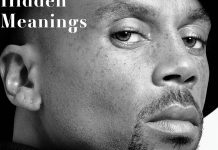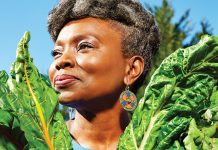
In his twenty-sixth book, the thirty-ninth president of the United States scatters personal insights and front-row history into a collection of daily Bible meditations titled Through the Year with Jimmy Carter. Published by Zondervan, the book includes 366 one-page devotionals boiled down from thirty years’ worth of Sunday school lessons Carter has led in his southwest Georgia hometown and in Washington, D.C., during his four years in the White House.
In one passage, Carter, who turned eighty-seven in October, recalls a fishing trip on a little two-person paddleboat with his grandson Joshua. “As captain, he sat in front, pushing two foot pedals that made the boat go right or left. Despite our erratic course, we caught a nice bass—just the two of us,” Carter writes. “After one long period of silence, Josh looked at me and said, ‘Papa, this is the life.’ That incident won’t appear in any history books, but I’ll never forget it.”
Carter has written extensively about his childhood, his presidential years, and his religious faith, but not always with such a gentle, unself-conscious touch. Recently he called from his home in Plains to talk about his new book—written mostly while he was recuperating from knee replacement surgery—his family, and, a little reluctantly, his legacy.
 Photograph courtesy of the Jimmy Carter Library |
What’s the importance of a daily Bible meditation? It’s just like breathing, it’s been such a part of my life. Every evening for relaxation, my wife and I read the Bible out loud to one another. She reads one night and I read the next night—in Spanish, usually, just to practice our Spanish.
What kind of grandfather are you? [Laughs] Well, I’m not as good a grandfather as my wife is a grandmother. We have twelve grandchildren and six great-grandchildren. Among those eighteen, we’ve got a wide spread in character and attitude and age and geographical location. We stay in touch with all of them pretty well, and then once a year, for almost twenty years, Rosalynn and I have saved up our money and we take the whole family on a vacation. We’ve been to Panama three times and Mexico two or three times. We’ve been to the Dominican Republic and to Costa Rica. This year, because we have a lot of very young great-grandchildren, we’re going to Disney World.
You write a little about yourself as a father in this new book—about how it surprised you when you realized that you had been kind of harsh as a father, much like your father had been to you. I realized that pretty much the first time when I wrote a book of poems. When I analyzed how my father had treated me with some degree of manly indifference, compared to what I wanted him to demonstrate more emotionally, I realized that I had been a little too aloof, particularly with my own boys when they grew up. We had three boys and then skipped fifteen years and had Amy. I was very harsh with them. I was a stern disciplinarian. I made them work hard every day when they were not in school. We’re very close now, but I can see that when I was a father of young boys, I could have been a lot more emotionally involved with them. It’s not a self-condemnation. It’s just a self-analysis.
One of my favorite lines in the book is: “If I hadn’t been a square dancer, I never would have become president.” Is that true? That’s true. [laughs] It just happened that way. When Rosalynn and I got home from the Navy, we did a lot of things to get reacquainted with our rural heritage. We just reached out to some of our country neighbors and began to go to square-dancing events every Friday. And then we would go to state square-dancing conventions with the same group of almost 100 people from six or seven counties in South and West Georgia. Later, when I decided to run for the state Senate, it just happened that those counties were in my district. So I had unanticipated friends and political supporters in all those counties because I had square-danced with them. When I was elected, I only won by sixty-seven votes. And there’s no doubt in my mind that my square-dance friends were the ones who put me over. If I had lost that election, I never would have run for office again.
It makes a great point about keeping yourself open to possibilities. Do you have any huge regrets, for choices you made or maybe didn’t make? Not really. Whenever I’ve had a setback or a disappointment, I’ve been able to accept it as God’s will and to try to move on to something as an alternative. God always answers my prayers. Sometimes he says yes, sometimes he says no, and sometimes he says, “You’ve got to be kidding.” I’ve been flexible enough to accommodate unanticipated changes or disappointments.
Do you spend much time thinking about your legacy? You know, I’ve written a lot of books. I’ve looked back on my life a lot in my writing, and that almost requires me to assess my legacy. But I don’t dwell on it. I’ve usually done the best I could. I’ve been successful in some things, and, like every other human being, I’ve had some disappointments.
What motivates you to keep working so hard? I don’t feel that I work all that hard. I stay busy. Early next month I’ll be going to China again. I go there every year. The Carter Center has programs in about seventy countries—thirty-five of them in Africa—and I participate when my own personal presence is needed. I stay involved and I do my share.
Is there anything about politics that you miss? Not really. I feel very frustrated sometimes when I see what’s happening in Washington. I basically try to stay out of it, but I feel frustrated and disappointed.
Closing the gap between rich and poor has been such a big part of your postpresidential mission. How do you feel about the Occupy protests? I think they illustrate an inherent schism in our country that needed to be publicized. Just since I left office, the 1 percent of rich people has more than doubled the percentage of wealth in our country, and it’s primarily because of tax devices that the Republican Party has implemented to favor the richest people on Earth. The protests have changed the basic debate in our country away from just cutting budgets to this issue of inequities. I think it is the greatest challenge the world faces: the growing disparity in the wealth inside countries and among countries.
Are you hopeful for the future? It depends on what the subject is. As far as the United States remaining preeminent as the undisputed superpower on Earth, I don’t expect that to happen. I think we are destined not to be the most influential nation on Earth in the future. We might be the most militarily competent, since our military budget equals the combined military expenditures of all the other countries in the world, but we’re not the leader anymore in advocating peace or human rights or sharing wealth or the alleviation of suffering.
What other books do you have in the works? I’m always writing. I keep a diary. I’ve done a lot of woodworking, and I’m an amateur artist. I paint. And so I’ve outlined a book about craftsmanship. Every human being has within us a certain capability or talent, an opportunity given by God, and we should make the most of it. I’ve taken photographs of all my furniture, and I’ve got all my paintings together, so I’m thinking of doing a coffee-table book. That’s just one of the possibilities.
What are you reading now? I’m reading the biography of Steve Jobs. I’m really enjoying it. I knew Steve quite well. I’ve eaten supper with him in his house. Even within this past year, I had a number of telephone calls with him. I admired him and his wife, who is a lovely and very talented woman.
Do you think the book captures him? I think so. I didn’t know the negative side of Steve. I knew him as an innovative thinker. I did a big favor for him this past year. His workers in China who produce all the iPods and iPads were committing suicide. He was quite disturbed about it, and he called me to see if I could help him resolve the problem. I worked on it, and so did my wife, and we got psychiatrists to go over there and meet with people. That was the last encounter I had with Steve. I was pleased that he called on me to help him. I think he was an absolutely remarkable person despite his personal idiosyncrasies.
How are you enjoying your new knees? Great! I had one done in June and one done in August. The doctor told me that after six weeks, if things went well, I would feel better than I did before the operation, which is true. Now I hardly ever think about my knees. I’m walking, riding bikes, swimming. I’ve been very lucky.
![]() Teresa Weaver is one of our editorial contributors.
Teresa Weaver is one of our editorial contributors.
Learn more about her | Contact her















